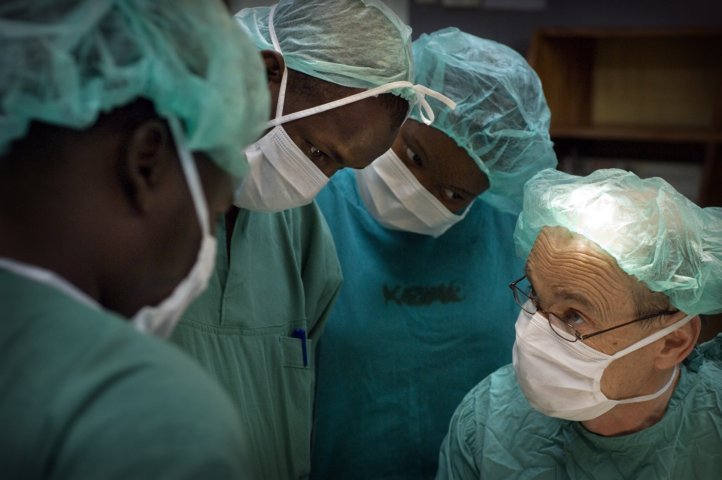By: Gilbert Nakweya
Send to a friend
The details you provide on this page will not be used to send unsolicited email, and will not be sold to a 3rd party. See privacy policy.
[NAIROBI] Africa’s health sector is ailing, I recently found out at a medical research forum.
As I interacted with researchers and other experts during the African Medical and Research Foundation (AMREF) Health Africa International conference in Nairobi, Kenya last month (24-26 November), I realised that the continent continues to face many health challenges.
Indeed, the continent desperately needs help to lift itself out of poverty and underdevelopment.
I was persuaded to believe that health challenges pose one of the greatest threats to the transformation of Africa.
“Without strengthening health systems and community participation and ownership, we will never be able to achieve universal health coverage.”
Teguest Guerma, African Medical and Research Foundation (AMREF)
Different from other forums which usually reflect on steps to address problems and the way forward, the participants had one aim: The need to act now to resuscitate Africa’s ailing health sector.
As a journalist, I was thrilled with the prospect of giving my readers a call to action story as stakeholders are keen to act now to save the continent’s health system from the intensive care unit. But act on what? How? I sought these answers from researchers, policymakers and private sector representatives at the conference.
For Teguest Guerma, the director-general of AMREF Health Africa, it is crucial that the community is seen as the foundation in the development of programmes and the setting of priorities for the continent’s health system.
Without strengthening health systems and community participation and ownership, we will never be able to achieve universal health coverage,” Guerma noted. Her statement highlights a big gap that I think has been persistently neglected.
Technologies and innovations, whether in agriculture or health, cannot be imposed on the people, but must be developed in partnership with the people.
Community health workers must be trained to bridge the gap between the people and healthcare workers such as nurses and doctors. Integrating community health workers in the formal health workforce in African countries should not be a stop-gap measure, but a deliberate policy action, I learned.
Persistent inequalities in health status require greater focus on strengthening health systems. Such a focus could help respond to challenges in maternal health, child health, major infectious and non-communicable diseases.
I laud the conference participants for calling on African governments to put in place enabling policies, invest in quality health services and show greater political will to address the continent’s health challenges.
Equally, governments need to urgently create the policy frameworks and investments to rapidly improve health research output in the continent.
Implementers, researchers and policymakers must create platforms to ensure research is translated into evidence-based policymaking and action to improve health in Africa.
Young African researchers should be motivated and supported to become part of the process of acting now to bring lasting change to health in Africa.
This article has been produced by SciDev.Net's Sub-Saharan Africa desk.














